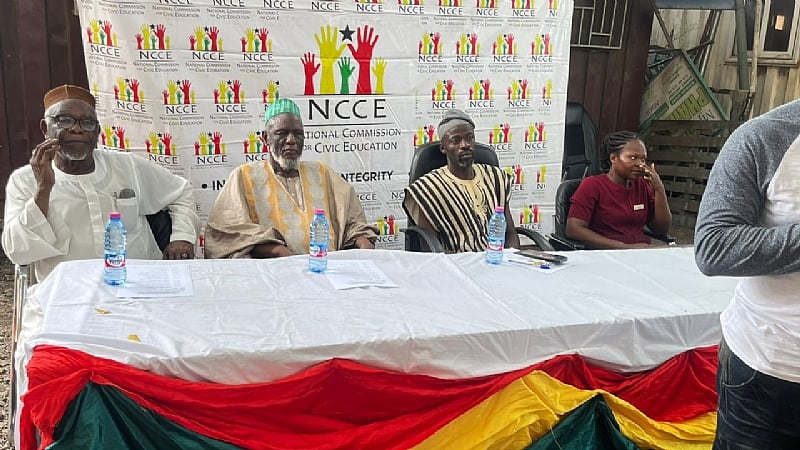The Importance of Childhood Immunization and Access to Child Health Services in Ghana
The National Commission for Civic Education (NCCE), in partnership with the Ayawaso North Municipal Assembly, recently convened a town hall meeting in Accra to emphasize the significance of childhood immunization and promote access to essential child health services. This event coincided with the Annual African Vaccination and Child Health Promotion Week, a continent-wide initiative aimed at bolstering child health outcomes. The meeting served as a platform to address critical concerns and disseminate vital information to parents and community members regarding child health and well-being.
A key message delivered at the meeting was the imperative for mothers to prioritize regular health checkups and vaccinations for their newborns and young children. Ms. Bertha Attah Anmhd, Deputy Director of Nursing Services at the Municipal Health Directorate, highlighted the crucial role of vaccinations in safeguarding children from preventable diseases like measles, polio, and whooping cough, which can have devastating consequences, including severe complications and even death. She underscored the concept of herd immunity, achieved through widespread vaccination, as a protective shield for those who cannot be vaccinated for medical reasons. Ms. Attah expressed concern over the high dropout rate in vaccinations observed across the Greater Accra Region, attributing it to inadequate awareness creation efforts. She urged parents to transcend personal beliefs and prioritize their children’s health, emphasizing their responsibility to seek timely medical attention at nearby health centers.
The meeting also addressed the emerging threat of Mpox (Monkeypox), a viral disease with the potential to cause significant health problems. Community members were encouraged to report any unusual skin rashes promptly to healthcare facilities to ensure accurate diagnosis and appropriate treatment. This proactive approach emphasizes the importance of community involvement in disease surveillance and prevention, contributing to overall public health.
Another critical aspect discussed was the importance of timely birth registration. Hajia Zakariah Habiba, a representative from the Birth and Death Registry at Mamobi General Polyclinic, highlighted the free birth registration period from birth to 12 months, emphasizing the financial implications of delays beyond this timeframe. She encouraged parents to capitalize on this free period to avoid future complications and ensure their children’s access to essential services and rights tied to birth registration.
The town hall meeting, through its focus on childhood immunization, access to child health services, and timely birth registration, underscores a multi-pronged approach to enhancing child well-being. By addressing these interconnected aspects, the initiative aims to equip parents and communities with the knowledge and resources necessary to safeguard their children’s health and future. The meeting’s emphasis on proactive healthcare-seeking behavior, coupled with community-level awareness campaigns, can significantly contribute to reducing child morbidity and mortality rates, aligning with broader national and international health goals.
The collaboration between the NCCE and the Ayawaso North Municipal Assembly exemplifies the effectiveness of inter-agency partnerships in addressing public health challenges. This collaborative spirit, combined with targeted community engagement, can create a powerful synergy toward promoting healthier communities. The meeting’s overarching message underscores the collective responsibility of parents, communities, and healthcare providers in ensuring the well-being of children, recognizing them as a valuable asset and the future of any society. By promoting accessible and timely healthcare services, the initiative contributes significantly to building a healthier and more prosperous Ghana.














